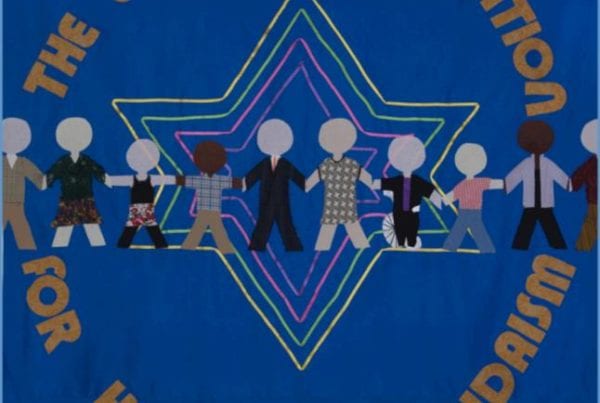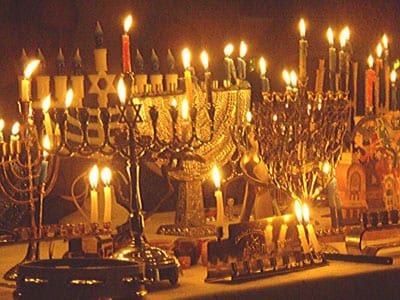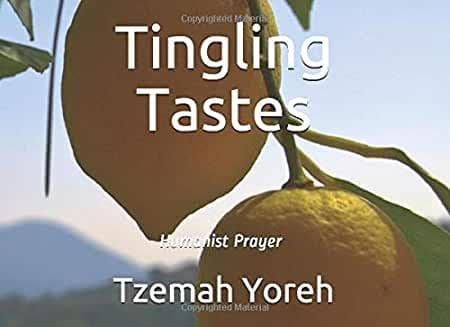Life’s Challenges
Devera Witkin
Yom Kippur 2009
I am so honored to be a speaker today, alongside my friend Hy Gold. Hy is a real mensch and such a kind, gentle man. And, thank you, Peter, for giving me this assignment because it’s opened my mind up to so many questions and answers about my life that had been hidden for so long. I’d also like to thank my dear friends Nikki and Gladys for their guidance, caring and support. Irma & Debbie, you are my BFF’s (best friends forever). Thanks for helping me keep my head attached during the last few months.
One of the most frequent comments I’ve heard and read about City Congregation members is that we’re “interesting people.” And, indeed while we share similar interests, we do have differing backgrounds. As someone coming from a traditional Jewish family, my own life, a combination of community and independence, has certainly been quite unusual.
My father was a military man, born in 1909 in Newport News, VA, a first generation American and the youngest of 7 children. Raised in an immigrant orthodox Jewish family, he was a rebellious – but nice Jewish boy who, against his family’s wishes, and desirous of the wide world of life outside a small VA town, joined the army as soon as he graduated from high school and stayed in the military until he retired some 33 years later. His most vivid recollection of his childhood was that his mother, for whom I am named, died when he was 11. He was raised by his 3 sisters, who made sure he graduated from high school, the only sibling to do so. His second most memorable recollection was that he was frequently slapped on his hands with a ruler by his Hebrew teacher and seldom attended synagogue after his Bar Mitzvah.
Unlike the stereotypical military authoritarian father portrayed in the movie The Great Santini, my daddy was a kind soul, well respected by the airmen under his command and open to diverse ideas. Even though daddy was in an occupation where authority was NOT questioned, he always encouraged me to question authority and to say what I thought and felt.
In 1945, my dad was in the first group of Americans who occupied Japan immediately after WW Two. Dependents were not yet allowed, so my mother and I moved from an army airbase in North Carolina where I was born, to Portsmouth, VA to live with my maternal grandparents, my Bubby & Papa, orthodox Jews who immigrated to America from Lithuania in 1900. They also shared their home with various other family members and boarders who came and went. My mother was the youngest of 6, and one of 4 girls. One of my earliest memories is of being allowed to stay up many evenings after Bubby & Papa went to sleep, and listen to my mother, aunts and their childhood girlfriends would sit around the kitchen table and reminisce about their younger days. They’d tell dirty jokes and talk about their young adult escapades, such as going out to eat the local tidewater VA delicacy of steamed crabs, THE great forbidden fruit for these kosher kitchen girls. I even heard them giggle about sneaking out on dates with non-Jewish boys, mainly sailors, since Portsmouth was a Navy town. My aunts spoke, to put it mildly, the language of Technicolor, which they cleaned up when they spoke with their parents but not so much when they talked with each other in front of the children!
My entire family continues to tell the tale of the time when I was about 3 years old, walking downtown with my Aunt Sara, to the one locally owned Jewish deli, when I spied the moon up in the sky and it was during the middle of the day. I pointed up to the sky, asking Aunt Sara what is that? She said it’s the moon. How did the moon get up there, asked little Devera. God put it there, said my aunt. What’s god’s last name? He doesn’t have a last name. We walked on, with my little brain churning. A few steps later: oh I know his last name. It’s god-dammit.
My mother and I were reunited with my dad in late 1948, and we moved to a very large airbase in Biloxi, MS just in time for my entry into 1st grade at a local civilian school. Thus began my elementary school career, a Jewish kid living on an airbase feeling like a total outcast. There was a lot to make me uncomfortable:
- First, In VA I had lived strictly with family, and hung out with my aunts, uncles and lots of cousins, all of whom were Jewish. Here there were very few other Jews.
- Second, my school friends had Xmas trees and made Easter eggs, and somehow equated Jesus with God. And I knew my family did not believe in Jesus the omnipotent being. My Papa told me that.
- And third, I could never get a perfect attendance record because we always attended High Holiday services at our base chapel.
During my middle school years, we lived at a small airbase near Munich, Germany, a mind-opening experience for a pre-teen-early teenager. By the time I was 12 years old, I had visited the concentration camp in Dachau twice, only 11 years after WW Two, a time when ashes still remained in the crematorium, and I saw, even though through the eyes of a young person, the hell that was wrought in that place, and the hatred we as Jews had experienced. It was a transformative experience for my belief system. I accepted for myself that I could not believe in a higher being. This evil could never have happened if there was such an all-powerful being.
I attended high school in Amarillo, Texas. My parents joined the only synagogue in town, which was, typically for small-towns in Texas, a reform congregation. I joined the congregation’s youth program, TFTY – Texas Federation of Temple Youth, so I could socialize with the other FOUR Jewish teenagers in Amarillo. Our tiny group traveled frequently to the larger Texas cities for conclaves (or conventions) to be with other Jewish teenagers. It was not easy being Jewish in small town Texas. Our parents worked hard to make it possible for us to have a “Jewish” experience in small town America (if Texas can be considered America). It was at the conclaves, with constant discussions of spirituality and faith, where I began to understand the concept that I could be spiritual without belief in an all-knowing, unseen divine being.
Further on, in my college years when I considered myself part of the beatnik movement, agnosticism and atheism were considered comme il faut, the expected behavior of that group. I still identified culturally with being a Jew, occasionally attending HH services at the university Hillel, staying for an hour or so, to fulfill my self-imposed commitment to Judaism.
Now to fast forward to the present and my life here in New York with Michael: It was 5 years ago on this high holiday, Yom Kippur, that Michael and I first came to the City Congregation. The possibility of death brought us to this Congregation. In Sept. 2004, Michael had just undergone an intensive medical evaluation for his ongoing asthma. At the end of the evaluation, the dr. showed us Michael’s CAT scan, pointing out to us a very visible 2.5 cm growth on the left lower lobe of his lung. We very quickly got an appt. at Sloan-Kettering, where the pulmonologist told us the growth was very suspicious for cancer and recommended that Michael have a PET scan to determine if the lymph nodes in his chest were involved. The scan in fact showed signs of generalized lymph node involvement, which gave added weight to the dr.’s suspicion that Michael had a malignant tumor. The doctor wanted to remove the affected lung right away; but we agreed only to a biopsy of the lymph nodes, which turned out to be positive for inflammation, but not cancer. The pulmonologist still wanted to operate. After further research on our own, we opted to wait an agonizing 3 weeks for an appt. with a recommended radiologist at another hospital to perform a specialized lung biopsy, the lung biopsy being the one missing link in this ordeal.
Meanwhile, Yom Kippur was upon us. We both felt so strongly that this was the time in our lives to be honest in a public setting about our beliefs. We would not attend another High Holiday service, where we would sit and listen to words in which we did not believe. We also had the strong desire to be with whom we call “our people”, and I desperately wanted to find a ready made community for emotional support and a rabbi to help bury my husband. We were relatively new to NYC at the time, having moved from our home in San Francisco in the summer of 2001 – we had no support systems in NY.
And then we saw an ad in the NYTimes for The City Congregation. We attended the Kol Nidre and Yom Kippur services, me weeping through the services, both from the thought of this being possibly our last holiday together, and from being in a place where we actually could believe all the written words, words that expressed OUR belief system. Community and Inquiry were so beautifully combined. At the break-the-fast on Yom Kippur, we were welcomed warmly by so many of you. So we joined, in November 2004, taking advantage of the first year’s reduced rate for new members who came to High Holiday services. (We still have this great deal available.) Shortly afterwards Michael had the biopsy and 1 week later, on my birthday, we learned that his tumor was benign and required neither surgery nor treatment. But it was too late to ask for our money back from The City Congregation and damn if we hadn’t already begun to make friends!
As our beloved founder of Humanistic Judaism, Rabbi Sherwin Wine said in his last radio interview. “Comfort comes from the people around you.” To cope with death, Rabbi Wine said, “humanists need a certain courage. “Courage is loving life, even in the face of death. It is sharing our strength with others, even when we feel weak. It is embracing our family and friends, even when we fear to lose them. It is opening ourselves to love.” This is exactly the type of spirituality we had been seeking.
At the beginning, Rabbi Peter asked the question: where do we turn for comfort and solace? MY answer is: to Michael, still my one true love, to my family, and increasingly to my friends – you – the TCC community – who, as I get older, ARE my family.



